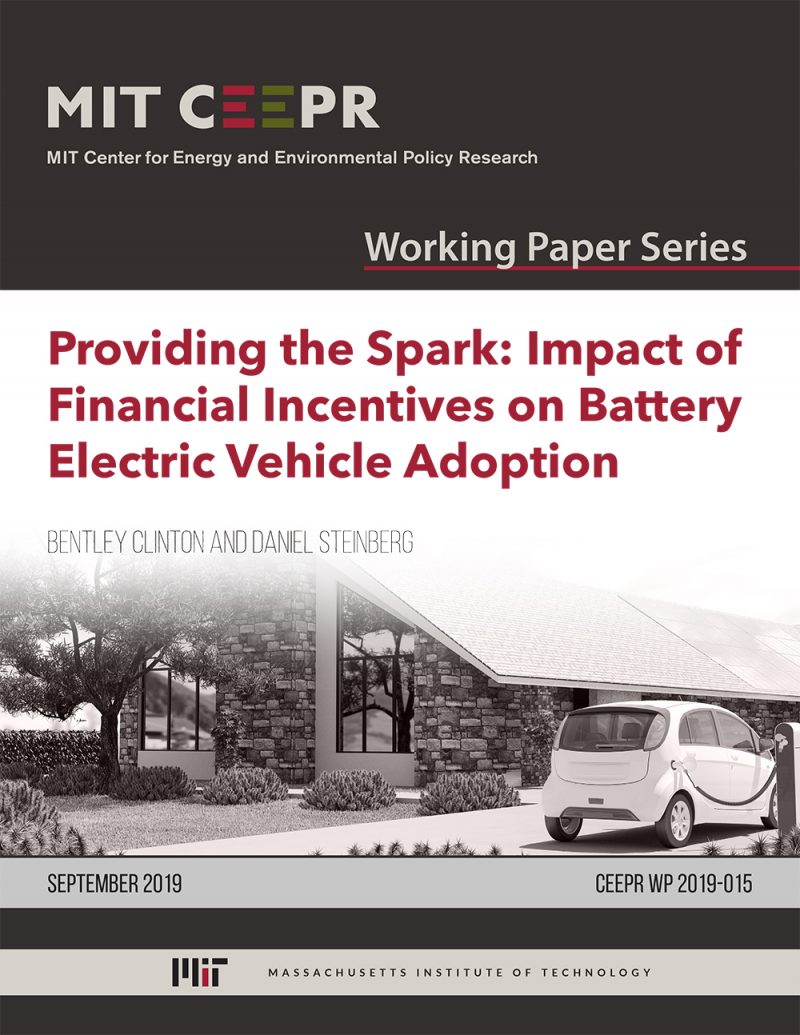Providing the Spark: Impact of Financial Incentives on Battery Electric Vehicle Adoption
Bentley C. Clinton and Daniel C. Steinberg
September 2019
To overcome adoption barriers and promote battery electric vehicles (BEVs) as an energy efficient consumer transportation option, a number of states offer subsidies to consumers for BEVs. We use a national data set of vehicle registrations and state-level financial incentives to assess the impact of vehicle purchase subsidies on adoption using both difference-in-differences and synthetic controls methods. We find that incentives offered as direct purchase rebates generate increased levels of new BEV registrations at a rate of approximately 8 percent per thousand dollars of incentive offered. Between 2011 and 2015, vehicle rebate incentives are associated with an increase in overall BEV registrations of approximately 11 percent. Our findings indicate incentives offered as state income tax credits do not have a statistically significant effect on BEV adoptions, though we caution this may be a result of limited temporal variation in BEV incentives across our sample. Responses to rebate incentives do not differ significantly by the make of the vehicle purchased (i.e., Tesla and non-Tesla vehicles). We combine our results with recent assessments of marginal environmental costs of electric vehicle charging and measure net welfare effects of BEV subsidy programs. Our analysis indicates these programs are not welfare-improving if only considering benefits associated with avoided emissions. Additional benefits associated with long-term market growth, production cost savings, network externalities, or accelerated innovation could substantially impact the net welfare outcomes.
Keywords: Electric vehicles, tax incentives, rebates, technology adoption
JEL classification: Q55; L98; O38; H71



